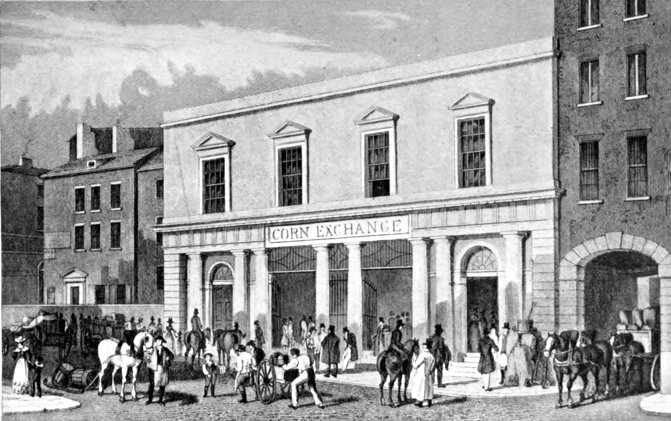
AGITATION DINNER.-The Radicals of Liverpool dine Daniel O’Connell, M.P., Mr. Sheil, M. P., and Mr. Wise, M.P., at the Corn Exchange, Liverpool, on Wednesday next. The tickets are one guinea each.[Present day value – £ 1,172] The trio are to arrive by the mail-packet from Dublin on Wednesday morning, and an attempt is about to be made by the Irish Catholics to get up a procession from the pier where they land into the town; and for this purpose all the Hibernian clubs are to turn out with their flags and instruments of music. The place of dining will hold about 1,000 persons. This occasion will be Dan’s first public appearance in Liverpool, and the novelty of such a species of agitation may in consequence draw together a large mob. (The Times 25th January 1836)
This rather short cutting from the Times has a very pleasing circularity. A whole strand of the story runs through Liverpool at various times, and this one almost certainly brings together two different bits of the family. Mr. Sheil, M. P., and Mr. Wise, M.P. are Richard Lalor Shiel and Thomas Wyse, who were two of the leading founders of the Catholic Association along with Daniel O’Connell. Both were at school with Patrick Grehan II at Stonyhurst, in Lancashire. Tom Wyse was married to Princess Letizia Bonaparte [Napoléon’s niece] The marriage was fairly rocky, and in May 1828 they agreed to a separation.
Letizia threw herself into the Serpentine in Hyde Park in a suicide attempt [probably from the newly built bridge] and was rescued by Captain Studholme John Hodgson who became her lover. They had three children together, who all used the surname Bonaparte-Wyse rather than their father’s surname.
Dan the man is the father-in-law of a cousin of a great aunt, and the other person who is highly likely to be at the dinner is Joshua Walmsley. There are a number of reasons to suppose this. He was a newly elected councillor, certainly wealthy enough to afford the cost of the dinner, politically ambitious, and as a grain merchant unlikely not to have wanted to be seen at a political event at the Corn Exchange
Joshua was a Reformer,[or Whig, or Radical, the terms were fairly interchangeable] councillor won 260 votes in Castle Street ward or just over 73% of the turnout. The ward returned three Whig, or Reformer, councillors. The polling place was at the two windows of the King’s Arms Hotel fronting Castle-street. He was re-elected unopposed in 1838, and became mayor in November 1839 – 1840 while the Reformers still had a majority on the council with 28 councillors , and 16 aldermen against 20 Tory councillors.
This was the first election to Liverpool Town Council, held on Boxing Day 1835. It was conducted under the provisions of the Municipal Corporations Act 1835. The Act reformed local government replacing corporations which were largely run by un-elected freemen, by councils elected by ratepayers.
After the election of Councillors on 26 December 1835 and the Aldermanic election in January 1836, the composition of the council was 44 Reformer councillors, and 15 aldermen, and 4 Tory councillors and 1 alderman. At the meeting of the Council in January 1836, sixteen Aldermen were elected by the Council, eight for a term of six years and eight for a term of three years. 15 whigs and 1 Tory.
Joshua Walmsley was elected Mayor of Liverpool in 1839, and was knighted on the occasion of the Queen’s marriage in 1840.
